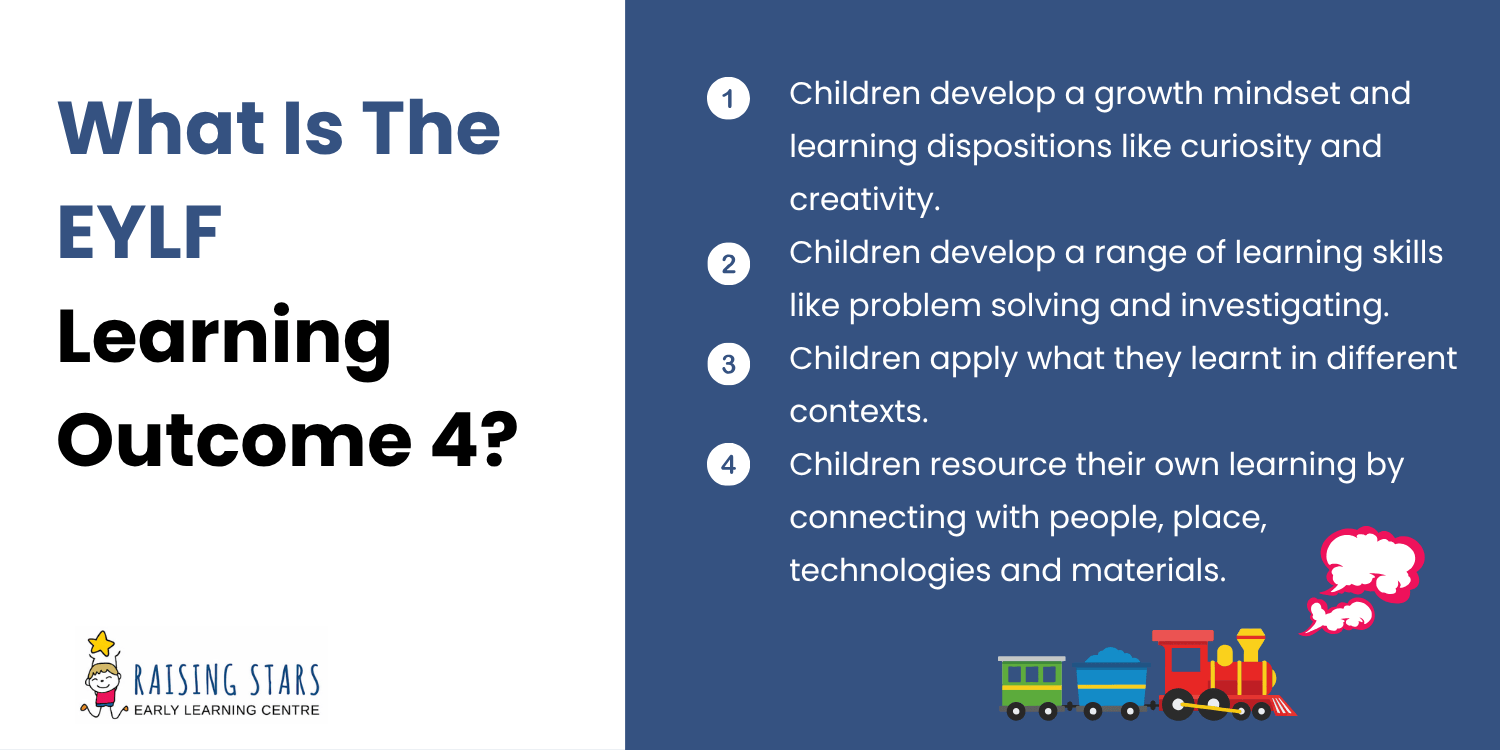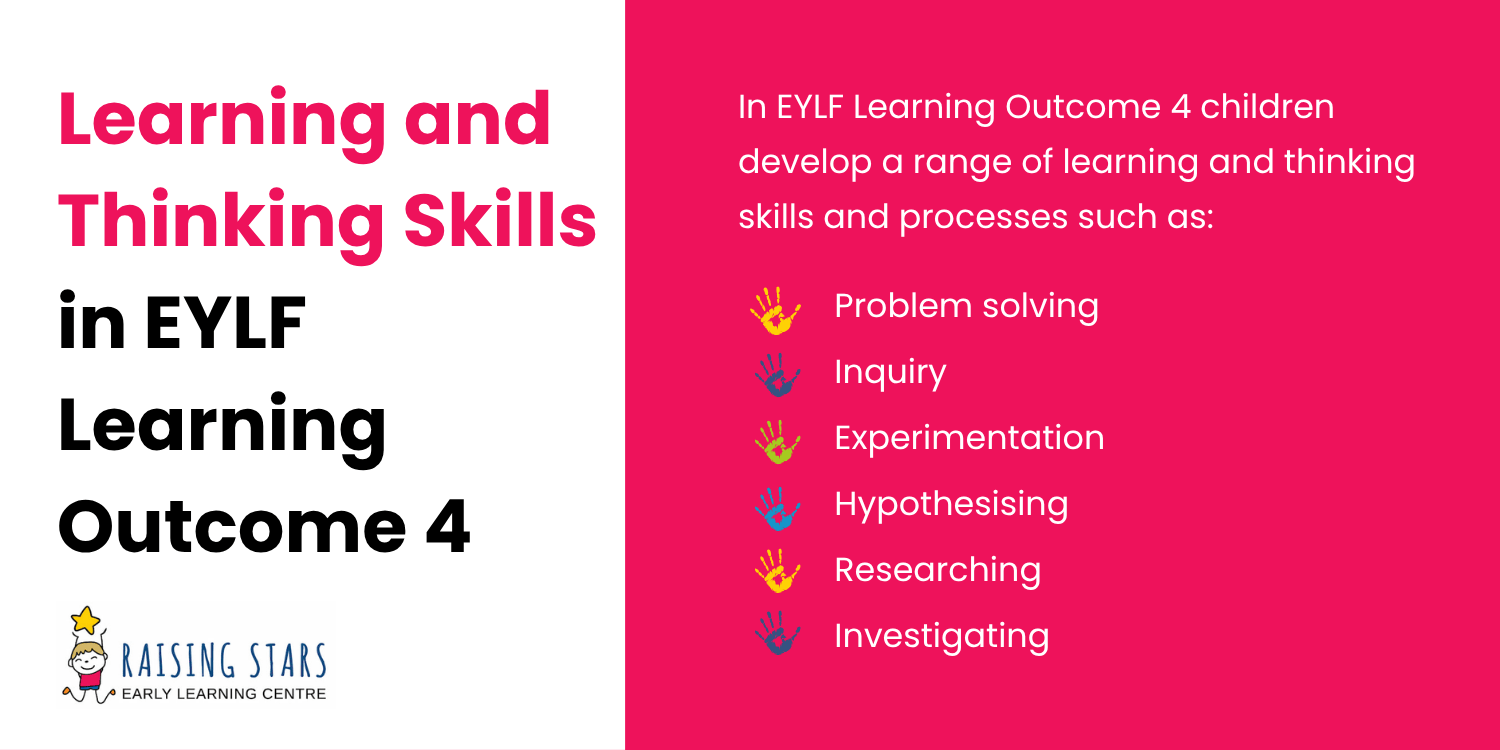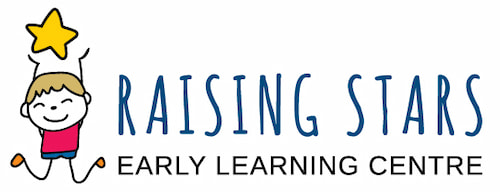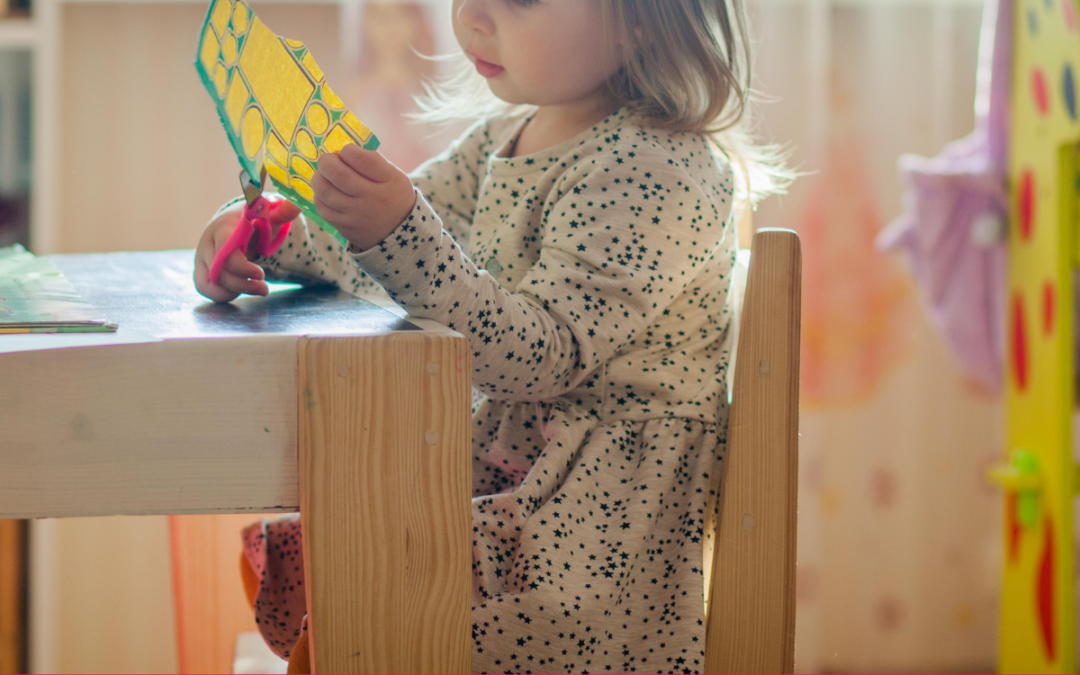Curiosity plays a big part in early learning – as children explore their surroundings, ask questions, and play, they develop a healthy sense of curiosity that drives a desire for learning. This internal drive is crucial to how children learn as they grow, both academically and in terms of soft skills. As children develop curiosity and learn from experiences, they build confidence and become more involved and engaged.
The Australian Government established the Early Years Learning Framework (EYLF) as a national standard for childcare education. The EYLF includes five learning outcomes:
- Children Are Confident And Involved Learners
- Children Are Effective Communicators
What Is The EYLF Learning Outcome 4?
The EYLF Learning Outcome 4 emphasises the importance of children developing learning dispositions, such as curiosity, persistence, and creativity, which enable them to participate in and benefit from learning experiences. These learning dispositions encourage children to become actively involved in experiences, take risks, and maintain focus and interest.
There are four indicators of the EYLF Learning Outcome 4:
- Children develop a growth mindset and learning dispositions such as curiosity, cooperation, confidence, creativity, commitment, enthusiasm, persistence, imagination and reflexivity
- Children develop a range of learning and thinking skills and processes such as problem solving, inquiry, experimentation, hypothesising, researching and investigating
- Children transfer and adapt what they have learned from one context to another
- Children resource their own learning through connecting with people, place, technologies and natural and processed materials

Children develop a growth mindset and learning dispositions such as curiosity, cooperation, confidence, creativity, commitment, enthusiasm, persistence, imagination and reflexivity
Children are naturally curious from a young age. Curiosity motivates children to test out new ideas, materials, and environments. Child care Educators provide rich, engaging experiences to spark the curiosity of children in early learning settings to support learning.
During play sessions, children are encouraged to ask, experiment, and explore in ways that help them build confidence in their cognitive, sensory, and physical abilities. For example, participating in a puzzle encourages children to keep trying to find solutions despite repeatedly facing incorrect placements. Similarly, building a fort along with other kids can stimulate teamwork, creativity, and innovation.
When a child is encouraged to be curious and persistent, he or she will develop resilience and confidence to face new situations. Children come to understand that making mistakes is part of the learning process, and by overcoming challenges creatively, they can find success.
Children develop a range of learning and thinking skills and processes such as problem solving, inquiry, experimentation, hypothesising, researching and investigating
Early learning educators design play activities and experiences that encourage children to investigate and solve problems. These activities may include construction play, sensory exploration, science experiments, and group games.
When children are presented with an appropriate level of challenge and are given the resources and freedom to explore creative solutions, they exercise critical thinking skills and develop problem-solving skills organically.
Educators provide support in these play sessions by prompting children to describe their ideas and approaches, which solidifies their own understanding of the thinking process. In group play sessions, children are also encouraged to express ideas to their peers, sparking collaborative learning and cooperation.

Children transfer and adapt what they have learned from one context to another
Transferable knowledge and skills make up a big part of the early learning journey. As children build problem-solving skills and their understanding of the world, it’s important that they form connections between their time in the child care centre, at home, and eventually, at school.
This can involve applying general concepts learnt through play to other situations, or trying our previous strategies to solve a problem in a different context. This transfer of knowledge helps children to form a more holistic picture of their surroundings and establish familiar concepts about how the world works.
At our child care centres, Educators point out similarities and connections between play sessions and various tasks to teach children about patterns and relationships between things. For example, a water-based play session may involve pouring water into different containers, which can serve as a way to teach children how to avoid spills when eating or drinking.
Children resource their own learning through connecting with people, place, technologies and natural and processed materials
Children will eventually learn to seek solutions on their own when faced with a challenge, which is a key part of their personal independence. When children begin to explore resources or new concepts on their own, they are taking their first steps toward building meaningful learning relationships.
Our Educators at Raising Stars promote this learning by providing ample opportunities for children to experience a broad range of knowledge, materials, and technologies. We design each play activity carefully and introduce new tools and media to gradually build new skills and techniques in each child.
To learn more about our early learning programs and how we incorporate the EYLF learning outcomes, get in touch with our child care centres in Five Dock, Gregory Hills, and Moss Vale.

